The below flyer is the climate-meme a growing number of us face.
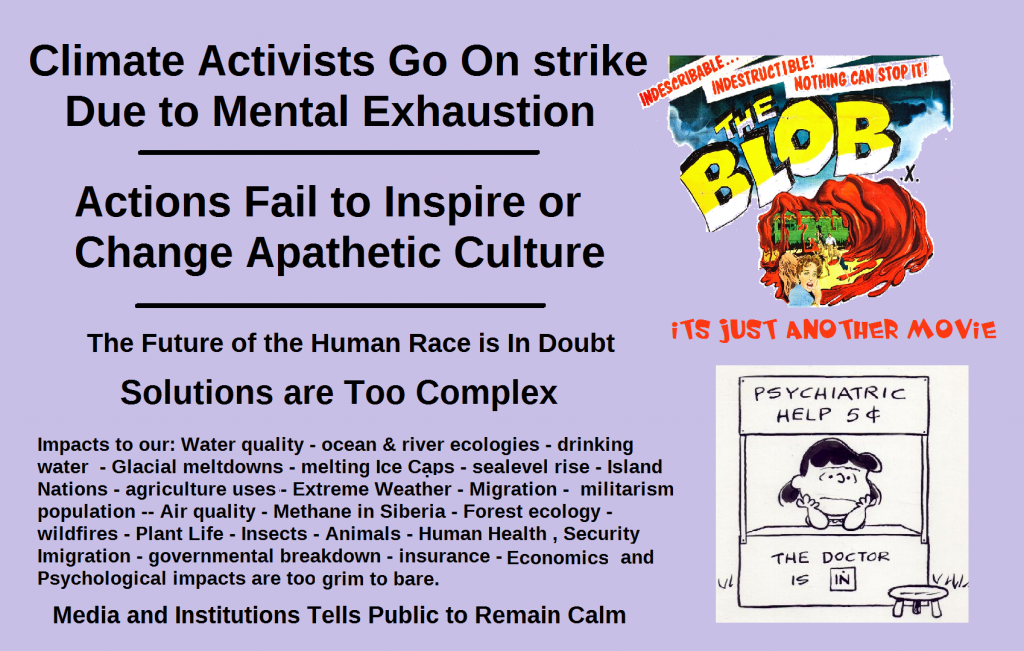 The past year has set off many climate-related alarm bells due to wildfires and extreme weather. After decades of exposure to its corrosive mental effects, experts, activists, and the public are experiencing increased levels of trauma. This presentation will walk you through the mental implications and resources currently available. Our established institutions, especially the media, have failed to help us deal with the climate crisis. We are on our own for now.
The past year has set off many climate-related alarm bells due to wildfires and extreme weather. After decades of exposure to its corrosive mental effects, experts, activists, and the public are experiencing increased levels of trauma. This presentation will walk you through the mental implications and resources currently available. Our established institutions, especially the media, have failed to help us deal with the climate crisis. We are on our own for now.
This story was written based on a review of almost 1,000 December 2019 climate articles. Less than ten of the stories mentioned the subject of psychological impacts. Please share this with anyone you know who is expressing fears about the climate crisis. You might help save their life.
I still have my college textbook about “global warming” before working at Greenpeace in the 1970s. My first experience with the impacts of climate on our mental stability came during a national green party conference in the mid-1980s. I was shocked as a climate scientist fell apart mentally when the group failed to make climate the top issue. A list of articles referenced in this work is at the bottom of this piece.
 In this recent article, a therapist set up an iconic Peanut’s booth known as The Doctor is In at a local public venue. She found that nearly 60% of those who visited the booth were worried about climate change. According to a psychologist in the same piece, 100% of the western world is impacted. An excellent example of this kind of avoidance appeared in this Australian wildfire article where the author blames public apathy, but fails to address the emotional health impacts of his own claim!
In this recent article, a therapist set up an iconic Peanut’s booth known as The Doctor is In at a local public venue. She found that nearly 60% of those who visited the booth were worried about climate change. According to a psychologist in the same piece, 100% of the western world is impacted. An excellent example of this kind of avoidance appeared in this Australian wildfire article where the author blames public apathy, but fails to address the emotional health impacts of his own claim!
A family member, who has never expressed concerns about the climate issue, sent me a recent Washington Post story about the Santa Barbara wildfires. The article mentioned a freak 3-hour heatwave on July 6th, 2018. Temperatures jumped 25 degrees late in the afternoon to 115 degrees, killing innumerable animals in the area. The article also highlighted the fact that Santa Barbara, the home of the environmental movement’s Earth Day, has failed to meet its climate goals under pressure from the local business community because of America’s entrenched lifestyles. The Post’s narrow and sensationalist format here fails to mention either the ten-fold increase of global wildfires since 2001 or Australia’s horrific fire season. Furthermore, the Post didn’t promote their own poll that 46% of Americans want the country to stop using fossil fuels!
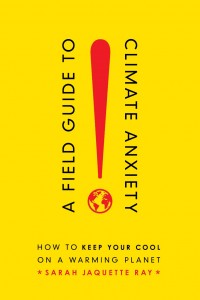 Check out this article for a broader review of mental impacts on the general public. For the best overview, you will want to download this important mental health guide by the American Psychological Association. As climate-related events grow, we can expect more people to experience Solastalgia (you probably have this), PTSD, and other symptoms. This article from London is the only one I’ve found that focuses on helping kids. Our human frailties must be confronted individually and by society. For those of us who acknowledge that we are part of the natural world, some are reaching out to Eco-psychologists for help. Other people dealing with their trauma are turning to activism, meditation, or spiritual activities. Groups like the Good Grief Network and Student support groups are also on the rise. Another excellent resource is the Optimist’s Guide to Climate Change.
Check out this article for a broader review of mental impacts on the general public. For the best overview, you will want to download this important mental health guide by the American Psychological Association. As climate-related events grow, we can expect more people to experience Solastalgia (you probably have this), PTSD, and other symptoms. This article from London is the only one I’ve found that focuses on helping kids. Our human frailties must be confronted individually and by society. For those of us who acknowledge that we are part of the natural world, some are reaching out to Eco-psychologists for help. Other people dealing with their trauma are turning to activism, meditation, or spiritual activities. Groups like the Good Grief Network and Student support groups are also on the rise. Another excellent resource is the Optimist’s Guide to Climate Change.
One of America’s biggest problems is how we stigmatize mental illness, and its correlative, mental health. Many of us, especially men, use avoidance as a solution. The Association of Psychological Science estimates that 60 million Americans suffer some form of mental illness annually, and 40% use avoidance to deal with it. Doesn’t this sound a lot like the root cause of the climate denial issue? Climate activists who deal with communication should be aware of The National Alliance for Mental Illness’ 9 major steps to help deal with stigma. Nor can the mental health impacts resulting from the corporate media be overstated. Their manipulative advertising techniques and promotion of stigma are legendary. Last but not least should be a look at how politicians and social media are using neurotic profiling.
Personal and Societal Lifestyle Changes
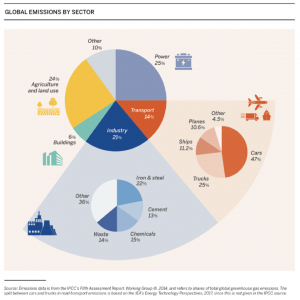 As this recent BBC story points out, the climate crisis is no longer about minor changes in comfort or getting a slightly more fuel-efficient car. This Mother Jones investigative piece points out, (note I’m not in agreement on their nuclear posture) make a stab at what it will take. There suggestion for a WW II R&D budget, suggesting that using more energy is just fine – just don’t use fossil fuels. How this plays out globally with consumption nightmares wasn’t tackled however. The most populated regions are heading for a full-scale train-wreck that demands serious shifts in how energy, food, and water are consumed. Many parts of the world are already in crisis from unhealthy air and water due primarily to the unsustainable exponential growth in the human population.
As this recent BBC story points out, the climate crisis is no longer about minor changes in comfort or getting a slightly more fuel-efficient car. This Mother Jones investigative piece points out, (note I’m not in agreement on their nuclear posture) make a stab at what it will take. There suggestion for a WW II R&D budget, suggesting that using more energy is just fine – just don’t use fossil fuels. How this plays out globally with consumption nightmares wasn’t tackled however. The most populated regions are heading for a full-scale train-wreck that demands serious shifts in how energy, food, and water are consumed. Many parts of the world are already in crisis from unhealthy air and water due primarily to the unsustainable exponential growth in the human population.
The University of Geneva’s Tobias Brosch, who is part of their Science-Policy Interface project, has produced a detailed investigation on the subject of human motivation. The report breaks down our psychological barriers to acting into five categories. These are:
- perceptual barriers;
- personal interests and benefits;
- unaccepted morality;
- social identity groups;
- ignorance of what can be done.
Our individual lifestyle choices have dramatic impacts on the planet when multiplied across our culture. Many online models lay out the broad array of lifestyle changes that people can begin to work on. The simple living movement takes is still an appropriate place to investigate lifestyle changes with this list of 100 simple living blogs.
One of the best tools to evaluate your carbon footprint is this carbon calculator.
The corporate agenda of framing frugality as a cardinal sin needs to stop. Look how “comfort (junk) foods” are now called when they are the most damaging not just to our health but to the planet’s.
 Most simple living values imply going rural or living in cooperative communities. This is a norm for much of the rural world, but alien to Americans. This decades’ old movement dates back to the Amish culture, the sixties’ back to the land, or tiny house movements. For urbanites trapped in high consumption lifestyles, it all boils down to major systemic changes. For example, America’s middle class consumes three times more energy than India’s. Much of the problem is embedded not just in our cars and electricity, but also in our food. Infrastructures based on sprawl will collapse economically over time. People trapped in this lifestyle should seek out cooperative values and community-oriented actions that focus on alternative housing and transit decisions. If this sounds like gibberish, spend some time going through the above materials.
Most simple living values imply going rural or living in cooperative communities. This is a norm for much of the rural world, but alien to Americans. This decades’ old movement dates back to the Amish culture, the sixties’ back to the land, or tiny house movements. For urbanites trapped in high consumption lifestyles, it all boils down to major systemic changes. For example, America’s middle class consumes three times more energy than India’s. Much of the problem is embedded not just in our cars and electricity, but also in our food. Infrastructures based on sprawl will collapse economically over time. People trapped in this lifestyle should seek out cooperative values and community-oriented actions that focus on alternative housing and transit decisions. If this sounds like gibberish, spend some time going through the above materials.
The Lucy booth presentation also looks at the political demographics. This includes the primary denial group in charge of the system, the wealthy, well-educated white men. The toughest question is whether we can flip their denial. Many strategists say that the 2020 election is the most important ever, giving us nine months to do this. We have a long way to go to address the main problems of global consumption, the planet’s carrying capacity, fossil fuels, water, agriculture, and dead soils.
There are hopeful signs of change all around us. For example, the TED Talk video by a billionaire titled Beware, fellow plutocrats, the pitchforks are coming* in which, Nick Hanauer makes the case that our trickle-down economics is destroying the country. He believes that a vibrant middle class is a critical foundation for a stable society. The biggest danger he sees is the economic injustice orchestrated by the wealthy elite. Some of his ideas are weak, but his warning that pitchforks will come if plutocrats don’t change is important. This goes for the climate deniers as well. By contrast, the New Yorker just documented how many super-rich people are building doomer bunkers.
There are No Issues Left Except the Corporate Media
The media is the main obstacle to the climate crisis in the U.S. next to the fossil fuel industry.
The media should be pressuring climate deniers, not giving them a platform. They are directly culpable for the failure to act on climate change. Some segments of the media are doing better but not the big 5 TV Networks. These networks are where 60% of Americans get their news. As mentioned above, with the Washington Post, the major daily newspapers are hardly doing better. Thanks to Rupert Murdoch, the Koch brothers, and Fox News, the evangelical right-wing has become climate deniers. Besides TV broadcasters’ fake balancing act, they are intentionally downplaying the Green New Deal, the popular campaign proposal for taxing stock market transactions, and stopping capital flight. Only one out of 55 climate news stories in a day came from a major broadcaster. Activists concerned about the climate crisis must take a new approach to the media. The media must stop using sensationalist coverage and give more weight to scientists. They need to speak out about Fox’s lying and denial. Finally, the media must include a global perspective that includes the demands of the movement.
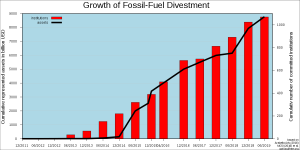 The fossil-fuel divestment movement is one area of positive news. The biggest story is Goldman-Sachs decision to no longer fund coal development. Then BlackRock, the world’s largest asset manager, joined the Climate+100 group. This group controls $41 trillion in assets, calling for sustainable alternatives to fossil fuels. In 2018, global coal growth (map) leveled off for the first time. The fossil fuel industry has created its own Iron Triangle as denier’s like Trump and rail companies continue their stonewalling. So, for now, all resistance is at the state or local level.
The fossil-fuel divestment movement is one area of positive news. The biggest story is Goldman-Sachs decision to no longer fund coal development. Then BlackRock, the world’s largest asset manager, joined the Climate+100 group. This group controls $41 trillion in assets, calling for sustainable alternatives to fossil fuels. In 2018, global coal growth (map) leveled off for the first time. The fossil fuel industry has created its own Iron Triangle as denier’s like Trump and rail companies continue their stonewalling. So, for now, all resistance is at the state or local level.
Meanwhile, a Silicon Valley think tank called “Singularity University” has been promoting the concept of disruptive technologies and exponential thinking. This concept of exponential growth and how quickly societal change can take place is worth a closer look.
What is Exponential Versus Linear Thinking
and Can it Make a Difference?
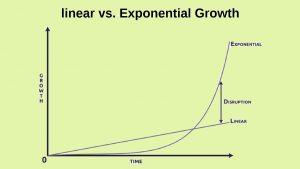 As individuals, our brain merges all of our activities, senses, and thoughts into a single stream of linear consciousness. Individuals are not good at multitasking, but this is not the case when it comes to our collective existence. Important changes can spread exponentially through society. A good example of exponential change was the development (or the) expansion of the ozone hole with the world quickly phasing out Freon worldwide. But the Ozone hole will take fifty years to heal and still plays a role in climate disruption.
As individuals, our brain merges all of our activities, senses, and thoughts into a single stream of linear consciousness. Individuals are not good at multitasking, but this is not the case when it comes to our collective existence. Important changes can spread exponentially through society. A good example of exponential change was the development (or the) expansion of the ozone hole with the world quickly phasing out Freon worldwide. But the Ozone hole will take fifty years to heal and still plays a role in climate disruption.
Understanding how social change works has been around for decades. Bill Moyer first devised this social change model known as the Movement Action Plan. Exponential growth can occur in a variety of ways. Whether it’s around economics, physics, cultural phenomena, or climate impacts, too few of us understand exponential change. A great example of this is Al Bartlet’s Arithmetic, Population and Energy – and the exponential function. * In this must-see video, Bartlett documents the frightening exponential growth of coal.
Another variation of exponential phenomena is the domino effect, as demonstrated at the beginning of this video on climate change. While Stanford’s Tony Seba’s video * shows how exponential strategies can impact transportation and climate. The most powerful example in his video is demonstrated by how quickly society moved from the horse and buggy era to the car.
 It is our potential for exponential change that is the best hope we will survive the climate crisis.
It is our potential for exponential change that is the best hope we will survive the climate crisis.
The Harder They Come, The Harder They Fall
The climate community needs a triage based response about how it targets specific audiences. Western Civilization needs a full stop reverse course process put in place, but that is not what we are seeing. Some climate activists call this degrowth.
There is a split between most climate activists and institutional researchers about how to reverse climate denial. This split was evident at the recent COP event in Spain. The biggest problem, however, is how to communicate with deniers or key stakeholders, like the fossil fuel industry. Psychologists and social scientists are now weighing in on how to communicate with climate deniers. Social scientists have proposed the following ten principles of good communication. Climate experts like Per Espen Stoknes, who acknowledge apocalyptic fatigue, are calling for better strategies. After 40 years of climate campaigns, Eco-psychologists are now treating traumatized activists. Madrid’s COP-25 gathering has been described as a near failure, even though UN leaders warned that we are reaching a point of no return. So, have we reached the climate and human inflection point yet? Australia’s wildfires, the worst ever, could very well be it.
A last comment about communication. We need a more compelling set of examples about key concerns that people with a 5th grade education understand. People just can’t grasp that we are talking about how much energy is needed to heat a pot of water the size of the planet! It takes many years of (BTU’s or British Thermal Units) energy use, a number with 22 zeros on it annually to do! Or the idea that Greenland’s Ice is melting at a rate equal to the weight of 3 million elephants every hour. Clear imagery about the scale of this issue need to be worked on.
Just Don’t Stand There! Do Something!
 One of the most important solutions to climate despair is doing something about it. The most important, of course, is to talk about the issue regularly and bring it up with your family and friends. Please see the lifestyle section for more.
One of the most important solutions to climate despair is doing something about it. The most important, of course, is to talk about the issue regularly and bring it up with your family and friends. Please see the lifestyle section for more.
Climate Caroling In Your Neighborhood
Go take a walk just before bedtime. See how many of your neighbors are leaving lights on. You might just be surprised if not shocked to see how many lights people are leaving on all night, especially outside lighting. You can do something about people’s behavior, even those that think the climate is a non-issue. You can put together a friendly flyer and put it in their mailbox, or on their steps suggesting that they can actually still retain their sense of security and safety while saving money and our climate.
Go out and be a neighborhood climate activist. The flyer should include information about motion sensor light bulbs and where to get them. These light-bulbs will turn on or off when anyone is within ten feet (products vary). The bulbs are not cheap (they are cheaper on Amazon) but will soon pay for themselves. Inside lights, can also be replaced with inexpensive LED nightlights. If you know a concerned neighbor, put some songs together and go out and sing them at people’s doors. “Tis the season to save the climate.” Keep track of how many neighbors respond. Take the idea to your city representatives and urge them to fund a serious campaign. Assume that most people who leave their lights on at night are not just conservative but also frightened about security. Focus on this with only a minor accent on climate.
In Conclusion
Not too long ago, a Dene elder was taken to a spot overlooking the city of Los Angeles. Shocked by what he saw, he realized at that moment why his people’s lands were being exploited by mining. Humans, as do other animals, have the capacity for caring until it’s beaten out of them. This is one battle that humanity can’t afford to lose. The global community wants to change! Overcoming inertia, and the allies, and profiteers of the fossil fuel industry are the challenges.
Will it be Australia that finally wakes the world up? We are not there yet, as a recent poll found that only a few are willing to accept a $1 a month tax. This crisis is about the media’s failure to inform people worldwide. Have you ever seen a major network do a prime time TV program on reversing climate change? Their climate coverage tactics are responsible for people’s growing psychological impacts.
Very few people fully understand the role media’s plays in climate change. Not a single major network has ever shown the BBC’s “Century of the Self” documentary about the media’s role in manipulating us. We desperately need a new era of media literacy now that Chomsky or McLuhan have long become outmoded by social media and promotion of the Internet Of Things.
Online Content reviewed or used in writing this
Climate Related Content
Climate Trauma Articles
Please Check the AA Clearinghouse’s Climate Mood News Feed for the latest updates!
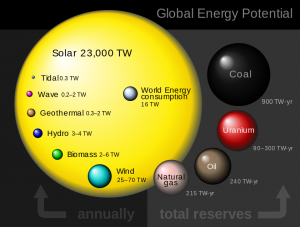 How Can We Prompt Individuals To Take Action on Climate Change?
How Can We Prompt Individuals To Take Action on Climate Change?- Climate Change is Scary: Here are 7 Tools to Help You Keep Your Cool on a Warming Planet – Resilience
- As climate change worsens, so does our grief and distress
- Global Warming Linked to Higher Suicide Rates across North America – Scientific American
- Psychology Can Get All Hands on Deck to Fight Climate Change | Psychology Today
- New Study Details Overlooked Link Between Climate Breakdown and Violence Against Women | Common Dreams News
- Child mental health crisis ‘escalating due to climate change’ | London Evening Standard
- Is it wrong to be hopef
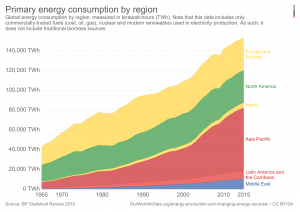 ul about climate change? – BBC Future
ul about climate change? – BBC Future - The Transformative Power of Climate Truth — The Climate Mobilization
- Propaganda, Fake News, and Activism · ClimateViewer News
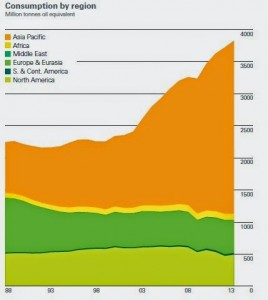 Connecting on Climate
Connecting on Climate- 6 Things That Hide Behind Defensive Behavior and How to Deal with It – Learning Mind
- A-Z of climate anxiety: how to avoid meltdown | The Guardian
- How to Overcome “Apocalypse Fatigue” Around Climate…
- ‘Overwhelming and terrifying’: the rise of climate anxiety | The Guardian
- Political economy of climate change – Wikipedia
- Derby staff and students given climate change anxiety therapy
- Psychologists explain our climate change anxiety – ThinkProgress
- The Inequality of Climate Change | Psychology Today
- How Psychology Can Save The World From Climate Change : 13.7: Cosmos And Culture : NPR
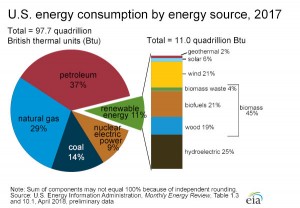 Climate Change Anxiety | Ecopsychology
Climate Change Anxiety | Ecopsychology- What Climate Change Tells Us about Being Human – Scientific American Blog Network
- How Eco-Anxiety Exploded Across the Western World | Time
- The mental health stresses of climate change begin to show | The Kingston Whig-Standard
- How Climate Change Is Affecting Our Lives | Climate Reality
- Feeling distressed about climate change? Here’s how to manage it
- CAKE: Climate Adaptation Knowledge Exchange
- Just for Kids: What’s Climate Change? And What Can I Do? | Climate Reality
- Climate Change and Health | Climate for Health
- Climate Change and Its Impacts on Mental Health | Psychiatric Times
- Your Guide to Talking With Kids of All Ages About Climate Change – EcoWatch
- How to cope with climate anxiety: tips from a therapist
- The harm from worrying about climate change – BBC Future
- CLIMATE TRAUMA & RECOVERY: The Healing Path of Cultural Truth & Reconciliation – EcoPsychology NOW!
- Taking The Climate Crisis Personally – EcoPsychology NOW!
- #CallMeByMyName: CLIMATE TRAUMA – EcoPsychology NOW!
- Climate Change and the Attention Economy – Resilience
- BP exec’s daughter taking anti-depressants due to Climate Change
- The Hidden Mental Health Costs of Climate Change – VICE
- ‘Climate Despair’ Is Making People Give Up on Life – VICE
- Climate anxiety churns up a psychological storm in the United States – Raw Story
- We Need a Massive Climate War Effort—Now – Mother Jones
- The Century of the Self
- Australia Was Warned us
- What happens when a corporation colonizes a country? | Salon.com
- Revealed: the 20 firms behind a third of all carbon emissions | Environment | The Guardian
- Is trauma handed down through generations? | Society | The Guardian
Climate Media Articles
 Climate change deniers’ new battle front attacked | Science | The Guardian
Climate change deniers’ new battle front attacked | Science | The Guardian- Media on Climate Crisis: Don’t Organize, Mourn | Common Dreams
- Press Watch: New York Times’ political coverage implodes — at the worst possible moment | Salon.com
- Over the last decade, the climate emergency became front-page news | Salon.com
- Media ‘impartiality’ on climate change is ethically misguided and downright dangerous
- Four of the most interesting sign projects about climate change » Yale Climate Connections
- The Propaganda Multiplier – Swiss Propaganda Research
- A Media Mogul’s Noble Challenge to Moguldom | Common Dreams Views
- News coverage of climate change worldwide depends largely on nation’s wealth, study finds — Alabama Political Reporter
- How broadcast TV networks covered climate change in 2018 | Media Matters for America
- Fox News’ year of climate denial and conspiracy theories | Media Matters for America
- In media coverage of climate change, where are the facts? | Research UC Berkeley
- Media coverage of climate change » Yale Climate Connections
- Best of climate change coverage 2019—and a challenge – Bulletin of the Atomic Scientists
- 4 encouraging ways climate politics went mainstream in 2019 | Salon.com
- PBS Decides What Debate Watchers Need Is More Talk From Pundits | Common Dreams Views
- Infographics: Climate Change and Hurricanes
- The hard truths of climate change — by the numbers
- 5 of the biggest environmental and climate change stories over the last decade and what’s changed – ABC News
- Climate Crisis: We Need Radical Change Now, Not in the Future
- Number of Americans ‘alarmed’ by climate change tripled in last 5 years
Climate Communications Articles
- Jokes are a surprisingly effective way to talk about climate change | TheHill
- The Transformative Power of Climate Truth — The Climate Mobilization
- Climate change: “Social tipping points” are the only hope – Vox
- A Better Way to Talk About the Climate Crisis
- An Optimist’s Guide to Climate Change
- Earth Matters: Attitude change needed to combat climate change – Blog – The Island Now
- Two storytellers unmask the human face of climate change
- Let’s Argue About the Best Response to Climate Change – Mother Jones
- Hope is a critical component in addressing climate change » Yale Climate Connections
- Climate change: three ways to market the science to reach the skeptics
- Scientists Explore How Best to Communicate About Climate Change – Eos
- Resources for Educators | GlobalChange.gov
- Teaching Climate | NOAA Climate.gov
- Got climate change concerns? Keep talking – even when you disagree. – CSMonitor.com
- Americans Underestimate How Many Others in the U.S. Think Global Warming is Happening – Yale Program on Climate Change Communication
- The 4 D’s that can derail a difficult conversation – Poynter
- Yale Climate Opinion Maps 2019 – Yale Program on Climate Change Communication
The above incredible interactive map that is updated regularly documents just how badly the public underestimates the scale of support and acknowledgement of the climate issue
- Fear Doesn’t Work: Communicating Climate Change for 2017 | Climate Tracker
- 12 tools for communicating climate change more effectively | Guardian Sustainable Business | The Guardian
- Climate change opinion by country – Wikipedia
- Climate Change and the Attention Economy – Resilience
- How the oil industry has spent billions to control the climate change conversation | Business | The Guardian
- The ICC Releases Report on Resolving Climate Change Disputes through Arbitration | King & Spalding – JDSupra
- Climate change storytelling gets multidimensional » Nieman Journalism Lab
- Climate-gate 10 years on: what lessons have we learned? | Global | The Guardian
Tony Seba: Clean Disruption – Energy & Transportation – YouTube
Exponential Technologies | Peter H. Diamandis – YouTube
Ray Kurzweil (USA) at Ci2019 – The Future of Intelligence, Artificial and Natural – YouTube
Exponential Tomorrow | Ray Kurzweil | Exponential Manufacturing – YouTube
Plan B 4.0: Mobilizing to Save Civilization – YouTube
Exponential, Abrupt Climate Change, Function – YouTube
(Official Movie) THRIVE: What On Earth Will It Take? – YouTube err some of this is good editor…
- Regenerative Organic Agriculture and Climate Change: A Down to Earth Solution to Global Warming – Regeneration International
- Stop Fossil Fuels: Why We Must, How We Can
- Stop Funding Fossils – Oil Change International
- Amazon, Chevron, and Starbucks among 91 Fortune 500 corporations that paid $0 in federal income taxes in 2018: Report – Raw Story
- Sen. Cory Booker Just Dropped a Bill That Includes First-Ever National Factory Farm Moratorium | Common DreamsToo hot for humans? First Nations people fear becoming Australia’s first climate refugees | Australia news | The Guardian
- DNV GL report finds transition to clean energy driven by cities, states, corporations
- FERC Order Props Up Fossil Fuels, Dooms Climate Efforts | Common Dreams Newswire
- ‘Red Lights Flashing’: Australia Smashes Heat Record Just a Day After Previous Record Hit | Common Dreams News
- After Telling Moderator Climate Question ‘Misses the Mark,’ Sanders Says Real Issue Is Will We ‘Save the Planet for Our Children and Grandchildren’
- FERC Approval of PJM Anti-Renewables Proposal Throws State Policies Under the Bus | Common Dreams Newswire
- New Petition Calls On 2020 Candidates to Break Up Big Tech to Rein In Threat to Democracy | Common Dreams News
- Opinion: Soil carbon sequestration is an elusive climate mitigation tool
- The Oxford Handbook of Land Economics – JunJie Wu – Google Books
- Why a half-degree temperature rise is a big deal – Climate Change: Vital Signs of the Planet
- ‘The forest is shedding tears’: the women defending their Amazon homeland | Environment | The Guardian
- ‘Everything is Burning’: Australian Inferno Continues, Choking Off Access to Cities Across Country and | Common Dreams NewsLeading the Public Into Emergency Mode – Noteworthy – The Journal Blog
- Climate Emergency Campaign — The Climate Mobilization
- Fighting Water Privatization With “Blue Communities”
- Nationwide Bushfires Block Access to Nearly Every Major City Across Australia
- Inflection Point – GlobalEcoGuy
- China and India Dominate Emerging Energy World and Coal Power Generation Had a Large Increase in 2018 – NextBigFuture.com
- Mapped: The world’s coal power plants in 2019
- The Key to Solving the Climate Crisis Is Beneath Our Feet | Common Dreams Views
- The Looming U.S. Water Crisis – CounterPunch.org
- Statistic of the decade: The massive deforestation of the Amazon | Salon.com
- Extinction Rebellion: A Flock of Starlings and a Plane Tree | Common Dreams Views
- Clean energy must be rolled out six times faster – pv magazine International
- See the future of global warming in less than one second | MIT Sloan
- 10 Climate Change Impacts That Will Affect Us All
- 2019: The year of climate consciousness | Environment| All topics from climate change to conservation | DW | 27.12.2019
- Climate change denial was defeated in 2019. But what comes next won’t be easierg | Carlo Invernizzi-Accetti | Opinion | The Guardian
- Impacts of Green New Deal Energy Plans on Grid Stability, Costs, Jobs, Health, and Climate in 143 Countries: One Earth
- Climate change caused 15 disasters costing over $1B this year – charity
- New climate models urge a rethink of our possible future
- Climate change fears propel scientists out of the lab and into the streets
- Climate change: How humans can save planet Earth in next 10 years
- Climate change: The ice we’ve lost this decade, visualized – Vox
- How trees talk to each other | Suzanne Simard – YouTube
- In 2019 the public woke up to the climate crisis. When will the politicians? | Stephen Buranyi | Opinion | The Guardian
- Scientific Consensus | Facts – Climate Change: Vital Signs of the Planet
- Are Humans Too Hopelessly Shortsighted to Tackle Climate Change? – Mother Jones
- How regenerative agroforestry could solve the climate crisis | World Economic Forum
- Seven emerging technologies that will be vital for fighting climate change | Recharge
- Coal and climate change: Kentucky is ready to hear hard truths
- The 2100 Project: An Atlas for the Green New Deal | The McHarg Center
- 71 percent of California voters ‘very concerned’ about climate change | National Observer
- Climate Emergency CoP 25: Ranking of top climate change performers disregards consumption question
- Climate change: Trees ‘most effective solution’ for warming – BBC News
- The last-ditch effort to save the world’s forests from climate change | Grist
- Forestry and climate change
- COP25: UN climate change talks have stalled. Countries are blaming the US. – Vox
- To Combat Climate Change, See the Forest for the Trees – Scientific American
- Charts of the Week: Tackling climate change
- Climate change: How much can one person do? You might be surprised. – CSMonitor.com
- Climate-Change Activists are Targeting the Wrong Industry
- This decade broke all kinds of climate records—and not in a good way
- California voters now rank climate change as their top priority | Grist
- The health-care sector must address climate change | The Seattle Times
- How a closed-door meeting shows farmers are waking up on climate change – POLITICO
- Could the Pentagon Be a Climate Change Leader? – EcoWatch
- Climate change: Majority of Germans support ditching Christmas lights | News | DW | 08.12.2019
- Climate change is forcing one person from their home every two seconds, Oxfam says | World & Nation | rockdalenewtoncitizen.com
- New year’s disaster: full horror of Australia’s bushfires begins to emerge – in pictures | Australia news | The Guardian
- 20 photographs of the week | Art and design | The Guardian
- Australia is becoming a nation of dread – and the world looks on with pity and scorn | David Marr | Opinion | The Guardian
- About – Climate CoLab
- Evidence | Facts – Climate Change: Vital Signs of the Planet
- Climate change: Big lifestyle changes are the only answer – BBC News
- Motion Sensor Light Bulbs, Aukora 12W E26 Moti
- 53 Sources for Climate Change News – Blog
- Climate Change Actionable Checklist
- 100 Practical Ways to Reverse Climate Change
- Prevent Climate Change Checklist – Checkify
- 7 high-impact lifestyle changes to reduce greenhouse gas emissions | TreeHugger
- Top 100 Simple Living Blogs and Websites To Follow in 2020
- Defining Terms in the Simple Living Movement — Simple Living Toolkit
- One year to save the planet: a simple guide to fighting the climate crisis in 2020 | Environment | The Guardian
- Iron triangle (US politics) – Wikipedia
- Nasa Ozone Watch: Ozone hole history facts
- The Ozone Hole
- Thousands to sleep at beaches as fires encircle Australian towns – Raw Story
- The 10 must-listen podcast episodes of the decade | Salon.com
- New South Wales Fires In Australia: The World’s Response
- What Does Climate Adaptation Actually Look Like? Check Out This Awesome New Infographic Series from Cambridge | DeSmog
- Sizzling Arctic: Top 5 Climate Horror Stories in NOAA’s Report Card | Common Dreams Views
- This Turkish Chef Is Fighting Climate Change With the Help of Syrian Refugees
- Puerto Rico Is Affected by Climate Change More Than Anywhere Else
- New Documents Reveal Exxon-owned Canadian Oil Giant’s Shifting Climate Change PR | DeSmog
- Doomsday Prep for the Super-Rich | The New Yorker
- Climate Code Red: What would 3 degrees mean?
- Climate of chaos: the suffocating firestorm engulfing Australia | Australia news | The Guardian
- Eugenics, Infertility & Population Growth CRISIS Part 4 | coreysdigs.com
- December 2018 – PopConnect
- Human overpopulation – Wikipedia
- Top 10 Blog Posts for 2019 – Energy Institute Blog
- True Cost Accounting: Understanding the Real Cost of Food
- Koch-funded Climate Denial Front Groups – Greenpeace USA
- Hacked emails reveal plan to counter Rupert Murdoch’s climate denial | Environment | The Guardian
- Yeti 400 Lithium Portable Power Station / Solar Generator | Goal Zero
- Home – The Systems View of Life
- Climate and the Cryosphere
- Billionaires Beware | Inter Press Service
- Infographics: Climate Change and Hurricanes | Climate Nexus
- The hard truths of climate change — by the numbers – Nature
- Protecting Our Planet Starts with You
- IPCC Land Report | WWF
- exponential vs linear thinking – Google Search
- Exponential Growth Isn’t Cool. Combinatorial Growth Is.
- Bill Moyer | The Movement Action Plan
- How to Debate a Conservative As a Liberal: 13 Steps
- True Cost Accounting | The Lexicon of Sustainability | PBS Food – YouTube
- Humanity can’t recycle its way out of consumption problems | Salon.com
- World’s largest asset manager BlackRock joins $41 trillion climate-change investing pact – MarketWatch
- Cranky Uncle Vs. Climate Change: John Cook Is A Cognitive Scientist, Climate Communicator, & Cartoonist
- Why action on climate change gets stuck and what to do about it
- Past decade was the hottest on record – National Geographic
- Charts of the Week: Tackling climate change
- To Combat Climate Change, See the Forest for the Trees – Scientific American
- ‘Statistic of the decade: The massive deforestation of the Amazon
- The ICC Releases Report on Resolving Climate Change Disputes through Arbitration
- Roles of forests in climate change
- How regenerative agroforestry could solve the climate crisis
- Climate change: Trees ‘most effective solution’ for warming
- Trees are dying at unprecedented rates. Can we rethink conservation before it’s too late?
- Regenerative Organic Agriculture and Climate Change: A Down to Earth Solution to Global Warming
- How much can one person do to limit climate change? A graphic.What is degrowth?
- Climate change fears propel scientists out of the lab and into the streets
- Climate change storytelling gets multidimensional
- New climate models urge a rethink of our possible future
- 10 years to save planet Earth: Here are 6 imaginative climate change solutions
- California Can Make Lowly Water Heaters Mighty Climate Tools
- High-Impact Actions for Individuals to Reduce Greenhouse Gas Emissions
- Oceans are warming at the same rate as if five Hiroshima bombs were dropped in every second
- Scientists say hot ocean “blob” killed one million seabirds
- Luxury travel: 50 wealthy tourists, eight countries … and one giant carbon footprint
- Top 20 Ways to Reduce Your Carbon Footprint
